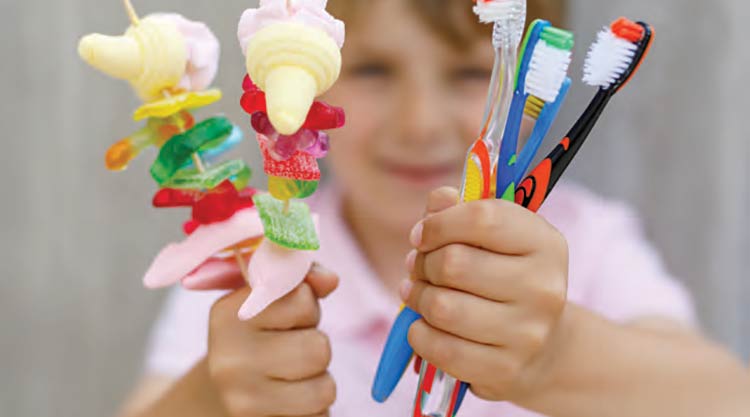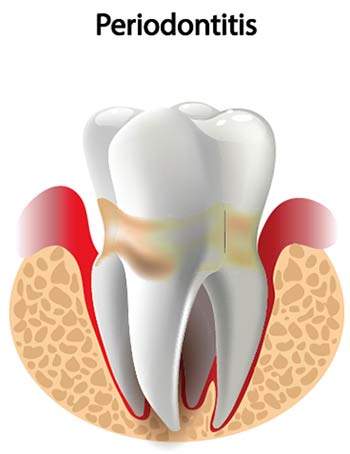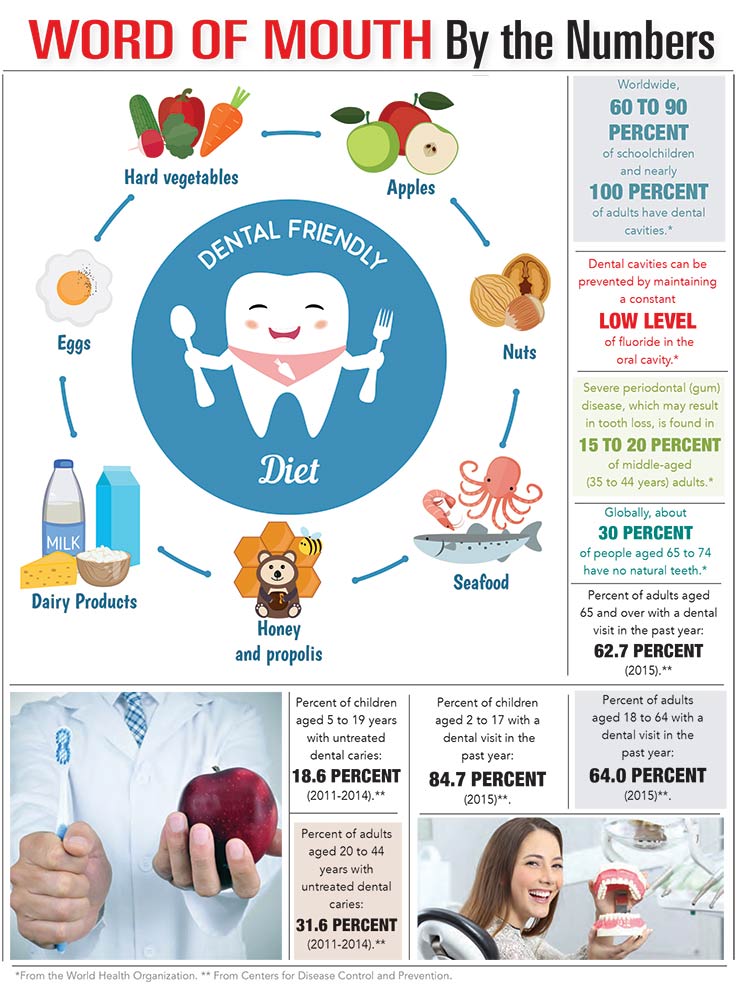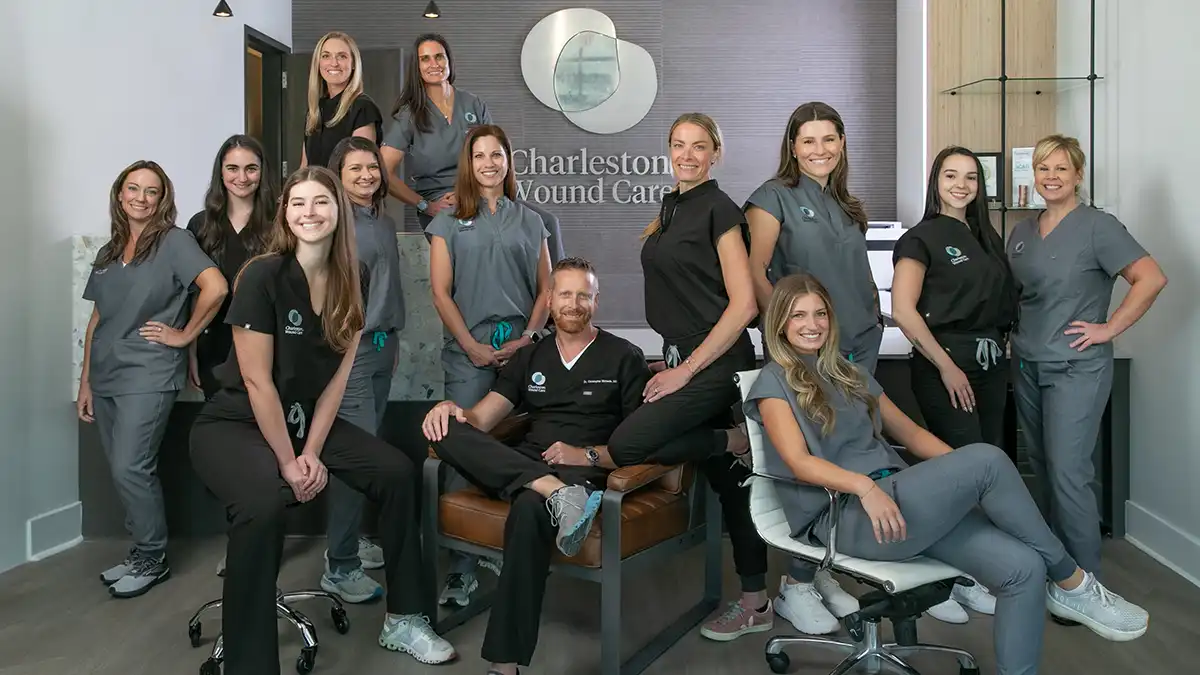
Right after I started the new sugar-free diet that my good friend Katie recommended, I noticed I was no longer spitting blood into my bathroom sink after brushing my teeth. Perhaps that seems like too much information, but, trust me, there’s a lesson to be learned here. What we eat affects our oral health, and the sooner we figure that fact out, the happier – and less prone to problems – we will be.
Which Foods Affect Our Oral Health?
Most of us spent our childhood years hearing about how candy was terrible for our teeth, but it turns out there’s more to it than that. In fact, according to Dr. Ed Murphy of Periodontal Associates, foods that we might not even think of as detrimental to oral health can be culprits. A diet high in fermentable carbohydrates – sugars that the body processes with ease – can cause issues. But these sugars are found in more than cookies and chocolate – they include starchy foods like refined wheat, rice and even some fruits and vegetables.
Dr. Hayan Lee at Delite Dental agreed, citing sugar and gluten as major culprits in poor oral health.
“There’s good and bad bacteria in the mouth, and the bad bacteria feeds off of sugar and produces the acid that causes tooth erosion,” she noted. “And acidic foods – lemons, for example – are no good either.”
Both doctors pointed out that whole, natural foods are preferable to packaged and processed items.
“Highly processed foods can be contributed to a higher incidence of dental caries, otherwise known as cavities, and periodontal disease,” Dr. Murphy said.
Does When We Eat Matter Just Like What We Eat Matters?
The American Dental Association website urges us to “limit the number of snacks we eat,” and even reports that “foods eaten as part of a meal cause less harm than snacks” because the amount of saliva generated during regular meals protects our teeth.
Obviously, though, we aren’t going to stop snacking. So what’s a compromise we can all live with?
“Late night snacks should be avoided,” Dr. Murphy warned. “And avoid acidic foods at times when you are unable to brush afterwards.”
What Warning Signs Should We Look Out for in Gum Disease?
 Gum disease, or periodontal disease, isn’t always the most in-your-face illness – but it pays to know the warning signs before the disease progresses. If gum disease is spotted early, it can be reversed by practicing excellent dental hygiene. But what should we be looking out for? According to Dr. Murphy, telltale signs include red, swollen or tender gums; bleeding while brushing, flossing or eating hard food; receding gums; sores or pus inside the mouth; or a change in breath or bite.
Gum disease, or periodontal disease, isn’t always the most in-your-face illness – but it pays to know the warning signs before the disease progresses. If gum disease is spotted early, it can be reversed by practicing excellent dental hygiene. But what should we be looking out for? According to Dr. Murphy, telltale signs include red, swollen or tender gums; bleeding while brushing, flossing or eating hard food; receding gums; sores or pus inside the mouth; or a change in breath or bite.
What Should We Do to Prevent or Reverse Gum Disease?
Gums looking red and inflamed? Noticing a trace of blood in your drain? Don’t panic – you can still change your habits and your oral health future with some choice strategies. Most important, of course, is to stop avoiding the dentist. We’re all guilty of it, but here’s the secret: the more you go, the less you’ll dread it!
“Keeping up with checkups is important,” said Dr. Lee.
“Periodontal disease is a silent disease with no symptoms. When you have this condition, your toothbrush cannot reach bacteria hidden in deep pockets. It is impossible to do a sufficient cleaning at home.”
Other than checkups, certain foods can promote tooth and gum help, according to Dr. Murphy. Foods rich in calcium, vitamin D and omega-3 have shown up in research studies published by the Journal of Periodontology. Even honey, lauded for its anti-inflammatory properties, can “reduce the incidence or severity of gum disease,” he said.
For People on Selective Diets, Such as Vegan or Dairy Free, Is There Anything Important to Note?
The concept of “a balanced diet” has changed a bit over the decades, mostly because of the media offering varieties of eating plans and reasons to adapt to said plans. Thus, even though your neighbor raves over being paleo and grills steaks each night, you might still prefer a vegan diet. Who’s in the right when it comes to oral health?
“This is a complex subject,” Dr. Lee mused. “Every human being is different, and not every type of diet or food is beneficial for everyone. At our office, Delite Dental, we talk a lot about foods and customize the discussion for each patient’s lifestyle.”
In the case of certain beneficial nutrients lacking in a person’s food intake, Dr. Murphy advised using nutritional supplements to make up for what is lost. Vitamins such as D, B2 and B12, as well calcium, in particular, “might be considered for overall systemic and dental health.”






